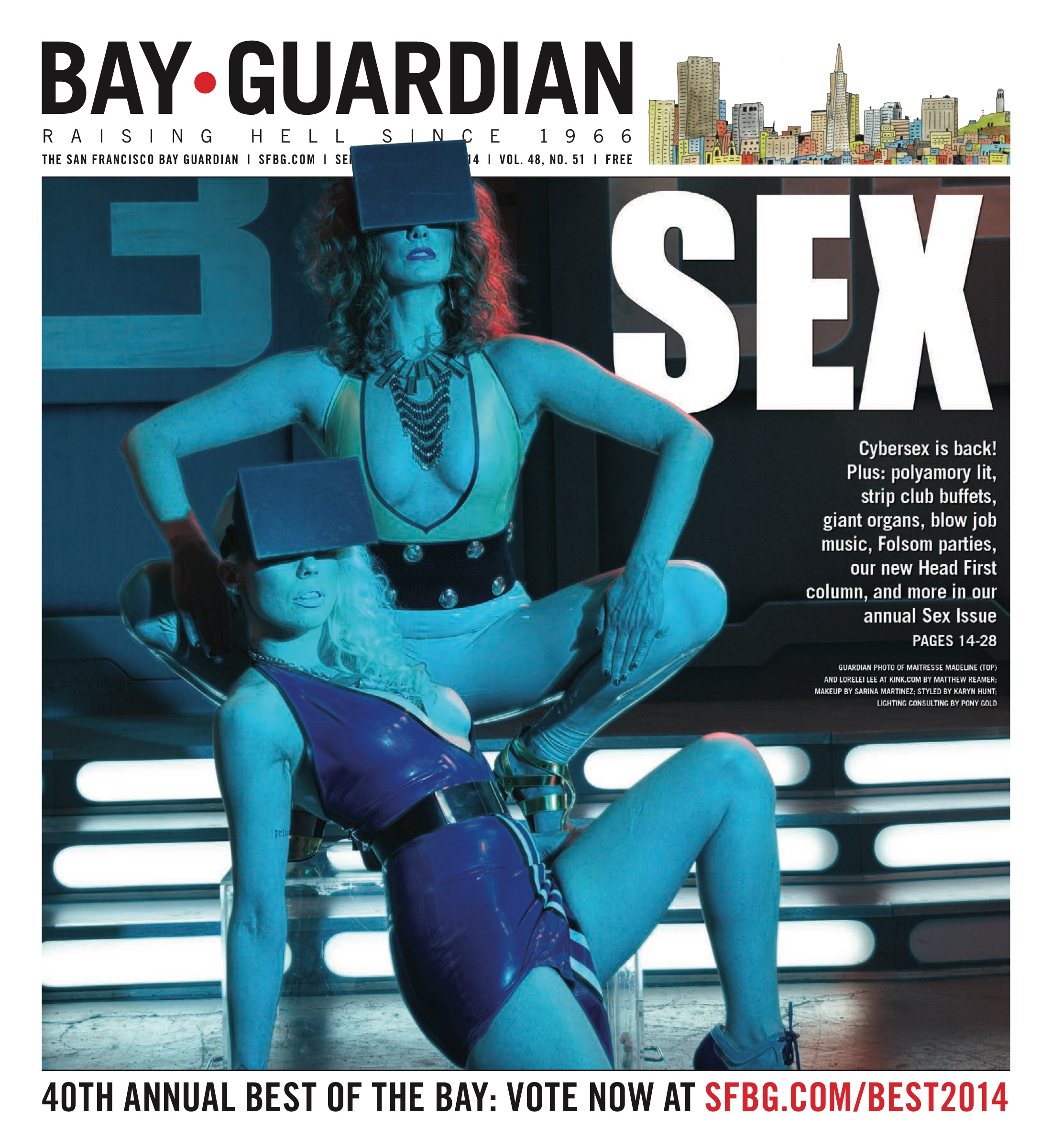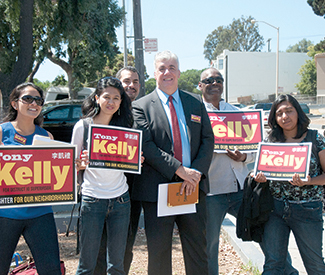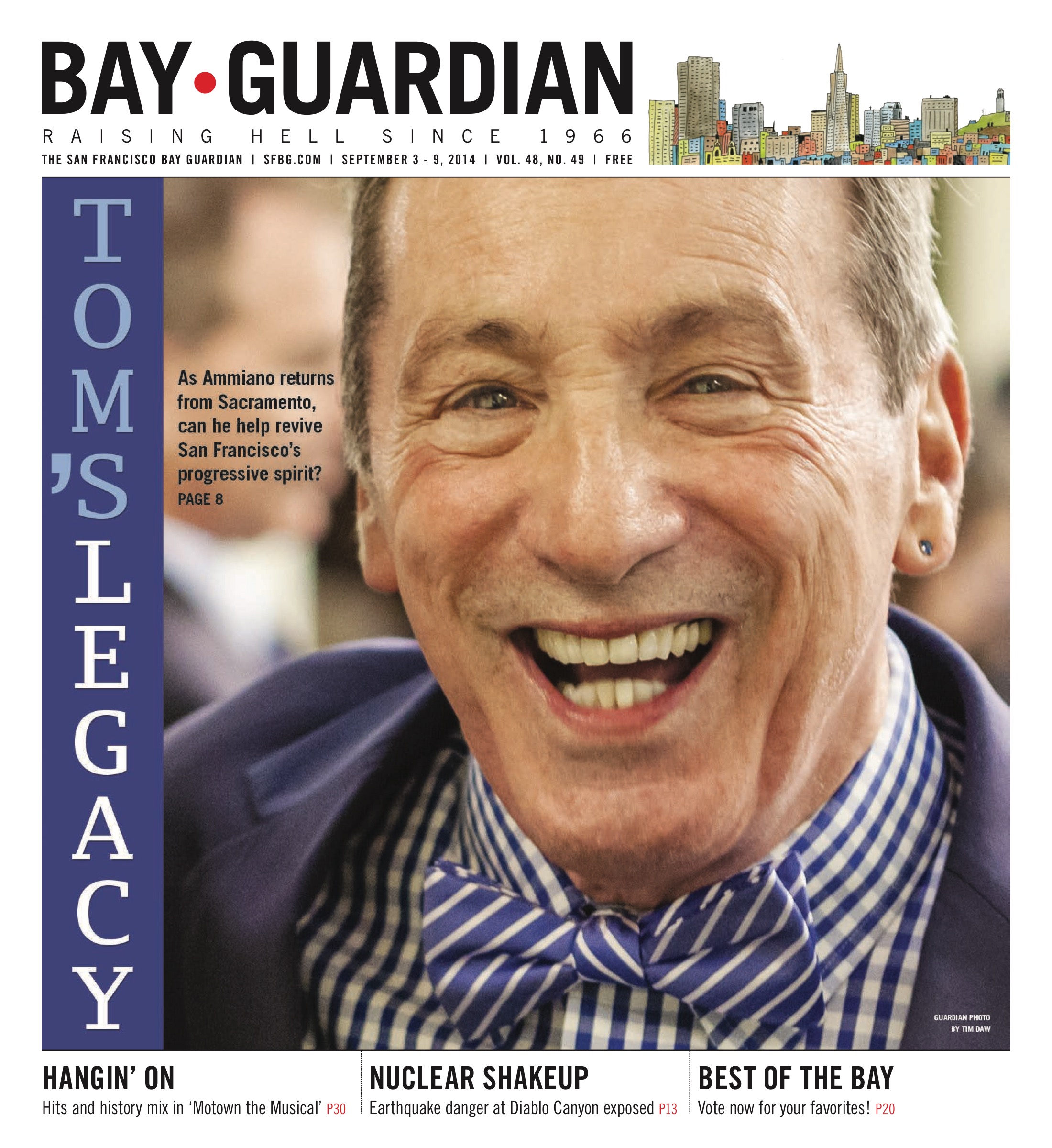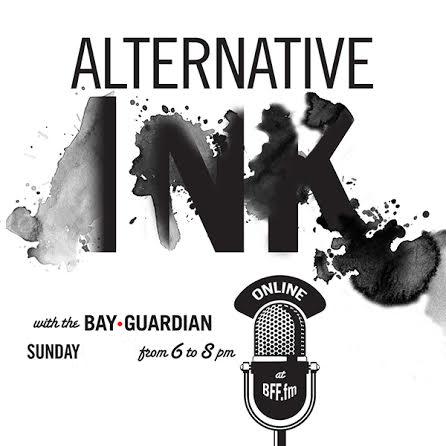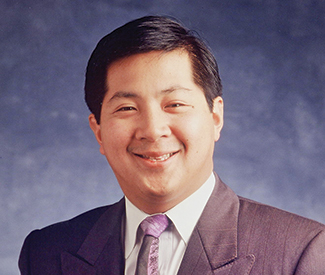Welcome to the November 2014 edition of a decades-long Bay Guardian tradition. As usual, we did many hours of endorsement interviews with candidates and ballot measure proponents and opponents, along with additional research to arrive at our picks, some involving difficult decisions. We’ll be posting the audio from most of those endorsement interviews at SFBG.com/Politics, so come listen in if you want more information. And don’t forget to vote by Nov. 4.
CALIFORNIA ASSEMBLY DISTRICT 17
DAVID CAMPOS
We’ll keep this brief because we already endorsed David Campos in the June primary election, but our enthusiasm for his candidacy has only grown since then. San Francisco needs a strong, clear, passionate progressive advocate in Sacramento, particularly as we deal with growing pains and displacement challenges exacerbated by state housing, tax, and election laws and cutbacks in funding for transit and affordable housing.

His opponent, David Chiu, is a skilled lawmaker and he wouldn’t be a bad legislator. But Chiu’s neoliberal economic positions (from the Twitter tax break to a business tax reform that favored the tech industry) and willingness to cut deals with powerful interests rather than hold the progressive line in favor of vulnerable populations give us doubts about what he’d do in Sacramento. We have no such doubts about Campos, who has proven himself to be an effective and trustworthy advocate for renters, workers, consumers, and those who need support against powerful economic and political players. That’s why he won the support of outgoing Assemblymember Tom Ammiano and a wide array of progressive entities.
Listen to our full endorsement interview with David Campos.
Listen to our full endorsement interview with David Chiu.
BART BOARD, DIST. 8
NICK JOSEFOWITZ
This was a surprisingly tough choice given how long we’ve been wanting someone to make a strong and well-funded challenge to entrenched incumbent James Fang, San Francisco’s only Republican elected office holder and the longest serving director at an agency that has been hostile to worker safety reforms and meaningful oversight of the BART Police Department. We got our wish this year when Nick Josefowitz, a solar energy entrepreneur, entered the race, did well in fundraising, and got lots of progressive political support. But SEIU Local 1021 strongly supported Fang, who walked the picket lines with striking BART workers last year. They and other Fang allies also highlighted Josefowitz’s opposition to CleanPowerSF and Prop. G, raising questions about his progressive credentials and political naïveté. Fang deserves credit for supporting BART workers last year and with advocating for a BART extension to Ocean Beach. But the BART board needs new blood, and we believe Josefowitz has the energy, ideas, and perspective to move the district in a more sustainable, accountable, and innovative direction.
Listen to our full endorsement interview with Nick Josefowitz.
Listen to our full endorsement interview with James Fang.
OAKLAND MAYOR
1. REBECCA KAPLAN
2. DAN SIEGEL
Unlike in San Francisco, where it’s sometimes tough for our progressive-minded editorial team to get excited about most candidates running for local office, we’ve got legitimately high hopes for both of our picks for the Oakland mayor’s race. Both Rebecca Kaplan and Dan Siegel offer compelling visions for a diverse and dynamic Oakland at a time when the city is in need of strong leadership. Kaplan, a LGBT candidate who gets around the city by bicycle and has a keen interest in sustainability, has a decade of public service involvement, including holding the at-large seat on the Oakland City Council. She’s emphasizing tackling unemployment and expanding local hiring for the Police Department as a way to improve trust between police and residents. Dan Siegel, a civil rights attorney with a laudable track record in Bay Area social justice movements, is deeply focused on raising the minimum wage to $15 an hour, defending the city’s poor and working-class residents from displacement in the face of gentrification, advancing police reform, and tackling inequality in public education. Whether Oaklanders vote for Kaplan first and Siegel second, or Siegel first and Kaplan second, we think they will have cast a vote for strong progressive leadership in Oakland.
SAN FRANCISCO BOARD OF SUPERVISORS
DISTRICT 2
1. MARK FARRELL
2. JUAN-ANTONIO CARBALLO
We at the Bay Guardian will always have ideological differences with whoever represents District 2 (Marina, Pacific Heights, Sea Cliff), which is one of the wealthiest and most conservative districts in the city. And we’ve differed with incumbent Mark Farrell on many issues, from condo conversions to business tax policy. But Farrell has proven to be a smart, humble, and accessible legislator who often works cooperatively with his more progressive colleagues to do the city’s business. His business background and fiscal expertise made him a solid chair of the Budget Committee, even if we’d like to see more resources directed to social services. And we applaud his recent efforts to address homelessness in the city and to work on legislation to discourage homeowners from keeping vacant rooms out of the housing market. Challenger Juan-Antonio Carballo is more progressive and has some good ideas for encouraging innovation in city government, but he’s new to politics and could use a bit more seasoning before he’s ready for the Board of Supervisors.
Listen to our endorsement interviews with Mark Farrell and Juan-Antonio Carballo.
DISTRICT 4
KATY TANG
Since being appointed by the Mayor’s Office to fill the seat that was vacated when Carmen Chu was named Assessor-Recorder, Katy Tang has mostly continued the role she played previously of competently tending to various concerns of her Sunset District constituents. But over the last year, as political tensions in the city have increased (such as between renters and landlords and supporters and opponents of CleanPowerSF), Tang has played an increasing vocal political role on behalf of the Mayor’s Office and vested economic interests, leading the attacks on the anti-speculation tax and other progressive reforms. We’d rather see her focus on her district, including the promising Sunset District Blueprint she introduced and its major political challenge of getting westside residents to finally accept more housing density. The eastern neighborhoods are growing rapidly and we’re hoping Tang and her neighbors will accept their share of the burden, and she has our support in that process. The Ocean Beach Master Plan that she’s been working on, something made more pressing by rising sea levels, also needs more political leadership to come to fruition, and we support that effort as well.
DISTRICT 6
1. JANE KIM
2. JAMIE WHITAKER
Jane Kim has sought to advance some laudable goals during her time in office, telling us her priorities have been to preserve affordable housing, improve pedestrian safety, and reform the homeless shelter system. Yet time and again, she’s demonstrated a willingness to support and compromise with Mayor Ed Lee, a tactic that has resulted in weaker outcomes than the city’s progressive ranks would hope for at a time when corporate influence in government has rendered City Hall out of touch with ordinary residents. For instance, Kim agreed to weaken a housing balance measure that would’ve created an enforcement mechanism to ensure a balance of affordable housing in San Francisco, and has questionable ties to lobbyist and former Mayor Willie Brown. Kim is a former Green Party member who comes from the progressive community and is a smart legislator, but she’s also an ambitious politician who’s been willing to divide and weaken the city’s progressive movement. It’s a careful balancing act that she doesn’t always pull off. She sponsored the Twitter tax break that fed the tech boom and hyper-gentrification, but now she is working to prevent that industry from gobbling up existing light industrial and office space. We grant her our endorsement in the hopes that she’ll use her influence to advance sound progressive policies. If you’d prefer to press the reset button and go with a candidate who’s less experienced and less well-known, but nevertheless critical of cutting deals for corporate interests and allowing rampant construction to continue apace in District 6, vote for Jamie Whitaker.
Listen to our endorsement interview with Supervisor Jane Kim.
DISTRICT 8
1. SCOTT WIENER
2. GEORGE DAVIS
It’s not easy to endorse Scott Wiener after all the battles that we and our progressive allies have had with him. We’ve fought him on condo conversions, CEQA reform, outlawing public nudity, and with generally siding with property owners and the business community. He often takes strong, uncompromising stands on issues that can infuriate his political opponents. But just as often, that strong political leadership has been in the service of things we believe in and support. Wiener has been the board’s biggest champion for creating a sustainable transportation system and getting more resources (along with more scrutiny) for Muni. He has been a leader on supporting nightlife in San Francisco, the best ally that bar owners and event promoters have had in many years. Wiener has a strong, independent political perspective and courage to cast tough votes, as when he gave the CleanPowerSF program a critical veto-proof majority. We’ve also found him to be honest and accessible even when we don’t agree with him. George Davis is a single-issue candidate focused on nudity, and we’re offering him our second slot mostly for symbolic reasons.

Guardian photo by Matthew Reamer.
DISTRICT 10
1. TONY KELLY
2. MALIA COHEN
The Guardian enthusiastically endorses Tony Kelly for District 10. Incumbent Malia Cohen is someone we like and don’t have strong opposition to, but she has not provided the leadership this district needs, particularly as it rapidly grows and wrestles with high unemployment, gun violence, neglected units in public housing, and environmental hazards that pose a threat to public health. Kelly is a knowledgeable advocate who has presented a detailed and thoughtful plan for crafting solutions in this changing and challenging San Francisco district, while refusing money from developers and real estate interests to make the point that the city should prioritize stabilizing affordable rental stock and preventing displacement. We appreciate Cohen’s service over the past four years, including moving forward the Schlage Lock development site in Visitacion Valley and facilitating gun buyback programs to prevent street violence. But at the end of the day, Kelly’s ideas on how to tackle some of D10’s greatest challenges strike us as being more principled, well-researched, and closely aligned with progressive principles.
Listen to our endorsement interviews with Tony Kelly and Malia Cohen.
SAN FRANCISCO MEASURES
PROP. A: TRANSPORTATION BOND
YES
San Francisco’s transportation system has some serious needs, and this $500 million general obligation bond is an important first step in addressing more than $7 billion in desperately needed capital projects, including Muni’s long list of deferred maintenance needs. Almost a third of the money will go to safety, circulation, and streetscape projects through the city, including finally addressing the cluttered, confusing mess on Market Street. The projects will benefit motorists, pedestrians, and cyclists. Although some critics of the San Francisco Municipal Transportation Agency have begun to raise concerns about soft language in the list of projects, suggesting it will go to cost overruns on the Central Subway project, SFMTA Director Ed Reiskin categorically told us that isn’t true. Besides, there’s no denying SFMTA needs the money to upgrade a transportation system that is at the breaking point at many times and places. And given that this measure requires a two-thirds vote, it deserves everyone’s vote and it has our strong and unqualified support.
PROP. B: TYING MUNI FUNDING TO GROWTH
YES
There’s an undeniable logic to Prop. B, which would increase the city General Fund contribution to the San Francisco Municipal Transportation Agency as the city’s population and workforce increase. That makes sense: Muni’s operating costs go up along with its ridership. Prop. B is retroactive to the last funding increase 10 years ago. Since then the population has jumped about 10 percent, immediately giving Muni about $22 million more per year. Ideally, Muni’s dire funding needs would be met with a new revenue source, and we share the concerns of advocates for social services and affordable housing that this measure will put more pressure on them during budget season. City leaders had promised to put a local increase in the vehicle license fee on this ballot, which we supported. But when Mayor Ed Lee balked, Scott Wiener and five of his colleagues responded with Prop. B. This measure contains a provision allowing the mayor to repeal this set-aside if and when voters approve the local VLF increase. Mayor Lee has pledged to do the VLF measure in 2016, so Prop. B is an important stopgap measure and leverage to make sure our flip-flopping mayor keeps his word this time.
Listen to our endorsement interviews, Yes on B and No on B.
PROP. C: CHILDREN’S FUND REAUTHORIZATION
YES
This is a set-aside of city funds for children’s programs, in three parts. It renews the Children’s Fund, which provides youth services through a property tax assessment; the Public Education Enrichment Fund, a General Fund set-aside that goes mostly to the school district; and the Rainy Day Fund, another city set-aside during hard times at the school district. It would guarantee that youth programs — including preschool programs, art and music curriculum in schools, and violence prevention programs — continue receiving these dedicated funds for at least another 25 years. Prop. C is the culmination of the efforts of a grassroots coalition of youth service providers who worked for about two years on crafting this measure. The Guardian strongly supports this measure, which helps thousands of young people in vulnerable situations in San Francisco.
PROP. D: RETIREE HEALTH BENEFITS
YES
This measure was unanimously placed on the ballot by the Board of Supervisors to give most employees of the old San Francisco Redevelopment Agency — a locally based state agency that was disbanded by Gov. Jerry Brown and the Legislature — and its Successor Agency the same retiree health benefits as other city employees. This covers less than 50 employees, so the Controller’s Office estimates it will cost about $75,000 spread over many years. These employees work mostly on facilitating affordable housing projects that the city desperately needs, and it’s a basic fairness issue that deserves voter support.

AP photo by Eric Risberg.
PROP. E: SODA TAX
YES
San Francisco and Berkeley have the chance to spark a national turning point against diabetes and obesity this election by instituting a 2-cents-per-ounce sugary beverage tax. Much like cigarettes were in a previous generation, sugary drinks are as ubiquitous as they are unhealthy. But unlike sugar-filled foods, the human body does not feel satiated after downing a Big Gulp: We just want more. Our city’s low-income neighborhoods have suffered the brunt of higher obesity and diabetes rates, which studies have linked to these sugary beverages. The science is clear and these mounting health care costs hurt all of us. The soda industry is pumping record-breaking dollars into this race because it fears this will start a national movement against soda. Do not believe the sky-is-falling cries from the industry, or its attempt to cast this as an affordability issue that hurts low-income communities of color, the very communities that the soda industry targets and this measure seeks to help. This is about discouraging unhealthy behaviors and raising tax revenue for health and fitness programs, which is why it needs a two-thirds vote. Fight big soda’s big money, ignore the lies, and vote for health.
Listen to our endorsement interview, Yes on E.
PROP. F: PIER 70
YES
Guess what? The Bay Guardian is endorsing a measure for a massive waterfront development project. No, this isn’t a love fest with the developers of tech offices and market-rate housing. There’s an important principle here: Forest City, the developer of Pier 70, has shown itself to be responsive to community stakeholders. It has committed to allocate 30 percent of the project’s units as affordable housing, which is sorely needed and more than most projects offer. The developers have spent years meeting with neighborhood groups, earning endorsements even from the Sierra Club. Prop. B, which passed in June, created a rule requiring voters to weigh in on new waterfront development proposals that would stand taller than existing height limits. That’s why the Pier 70 project is on the ballot — and that’s why the developers have maximized the project’s public benefits. Forest City’s measure can be read as a sign that Prop. B incentivized waterfront developers to present better projects.
PROP. G: ANTI-SPECULATION TAX
YES
Technically, this measure is a tax, but it’s a tax that its proponents say they hope never gets levied. The idea is to discourage a bad behavior that has been fueling the eviction epidemic and driving up housing costs in San Francisco: real estate speculators flipping homes for profit, often evicting longtime tenants in the process in order to maximize that profit. It would levy a 24 percent tax if a property was flipped with a year of purchase or 14 percent within five years. It exempts single-family homes and large apartment complexes, focusing on the units targeted by speculators. This measure revives legislation Harvey Milk introduced shortly before his assassination, and it was the top policy proposal to come out of a series of tenant conventions earlier this year. Opponents, led by Realtor associations that have dumped nearly $1.5 million into the race, call it a “housing tax,” claiming it will drive up rents. But such fear tactics have little basis in reality. The real threat to housing stability in San Francisco is from the rapacious speculators, often from out of town, that this measure is designed to rein in.
Listen to our endorsement interviews, Yes on G and No on G.

PROP. H: BEACH CHALET SOCCER RENOVATION
NO
This measure — opposing replacing an underused grass field with artificial turf soccer fields at the edge of Golden Gate Park — was a tough call. On the one hand, studies are mixed on the ultimate safety of playing fields made from recycled rubber tires (plus the potential long-term environmental consequences of using this material), and the potential flood of stadium light so close to Ocean Beach concerns us. Viscerally, this project bothers us. On the other hand, the switch to an artificial turf field here has been approved by every political body that has considered it and it has the support of progressive Sup. Eric Mar, who often champions families. Opponents’ concerns have been vetted over six years, and lack of park access is an equity issue. Our city fights tooth and nail to keep every family as we watch our child population continue to dwindle. The grass field is now underused, and the city’s children need a revamped place to play. With some reservations, we urge you to vote no and allow this project to finally move forward.
Listen to our endorsement interviews, Yes on H (No on I) and No on H (Yes on I).
PROP. I: RENOVATION OF FIELDS
NO
This proposition represents a disturbing growing trend in local politics. Prop. I is a response to Prop. H, the measure which means to block the creation of an artificial turf field at the edge of Golden Gate Park. If approved with a greater majority than Prop H, Prop I would void it. This is known as a “poison pill” measure, hard bargaining by politicians trying to torpedo propositions they do not agree with. This (rightly) breeds the public’s distrust of politics and politicians. Also, it’s just bad governance. If approved, the Recreation and Park Department could construct turf fields and bright flood lighting over any children’s playground or existing grass field if it can prove that doing so would double the park’s attendance, preventing the normal discretionary review and appeal processes. Proponents are also cloaking this campaign in a “help our kids” message, which rings hollow. This is bad politics, bad policy, and just plain bad.
Listen to our endorsement interviews, Yes on H (No on I) and No on H (Yes on I).
PROP. J: MINIMUM WAGE INCREASE
YES
San Francisco bears the unfortunate distinction of having the fastest-growing income inequality in the country — that’s why it’s so important to raise the pay of the lowest-paid workers. San Francisco could alleviate its growing wealth gap and maintain its progressive distinction as having the highest nationwide minimum wage if voters approve Prop. J. This bid to raise the minimum wage, placed on the ballot following a consensus between Mayor Ed Lee and the Board of Supervisors, would increase hourly earnings for the lowest-paid San Francisco employees to $15 an hour, up from $10.74, by 2018. To give you a sense of how much that’s needed, the National Low Income Housing Coalition estimates that a renter must earn $29.38 an hour in order to afford a one-bedroom, market-rate apartment in San Francisco. Prop. J poses an opportunity for San Franciscans to move toward greater economic equality. Vote yes and help turn the tide against the ugly wealth gap.
PROP. K: HOUSING POLICY STATEMENT
YES
When Sup. Jane Kim introduced this measure as the Housing Balance proposition, it was good legislation that might have helped balance the development of affordable and luxury housing, slowing down market-rate housing with additional studies and hearings when affordable units drop below 30 percent of total housing production. Then it got attacked by developers, political power brokers, and the Mayor’s Office and got turned into a fairly meaningless policy statement encouraging a housing boom and studies of how to reach 33 percent affordability. That is, 33 percent affordable by those making 120 percent of area median income and below and half by those making up to 150 percent AMI. We don’t like that upward creeping definition of “affordable housing” and we don’t think this measure should be needed to ask the Mayor’s Office to study how to meet its own stated housing policy goals, including the 30,000 units by 2020 goal that Mayor Ed Lee announced in January. He should have had a plan before making his pledge. But if this is what our elected officials require to start taking affordable housing development seriously, then fine, vote yes.
Listen to our endorsement interview, Yes on K.
PROP. L: PRO-CAR POLICY STATEMENT
NO
This measure is a shortsighted primal scream by motorists in a transit-first city that is rapidly growing and trying to address pedestrian and bike safety issues and chronic underfunding of Muni. It’s a difficult balancing act, and we understand that motorists feel frustrated by traffic jams and the fact that it’s not cheap or easy to park their cars (which is also the case in every major metropolis in the world). But this simplistic solution — which seeks to divert Muni funding to build more parking lots and give residents veto power over new parking controls in their neighborhoods — would only make things worse for everyone. With San Francisco rapidly adding jobs and homes within its finite road network, it’s more important than ever to encourage people to choose alternatives to the automobile, which also helps those who must drive. Good parking management policies also help drivers find parking spaces by encouraging turnover. But for motorists to act like some oppressed class is ridiculous, and voters should soundly reject this measure, which reeks of overentitlement and refusal to acknowledge the complex realities of urban living.
BERKELEY’S MEASURE D: SODA TAX
YES
Less ambitious than San Francisco’s beverage tax, Berkeley’s measure levies a one-cent-per-ounce tax on sugary drinks (versus two in SF). And this measure only needs a majority to pass, as the taxes will go into the city’s General Fund, as opposed to funding specific health measures. While this may on the surface seem problematic, the ultimate goal for the tax is not to generate revenue, but to raise the price of soda to dissuade people from buying it. As diabetes rates soar in low-income communities of color, Berkeley residents have a clear opportunity to promote public health and raise a little money in the process.
SAN FRANCISCO CITYWIDE OFFICES
ASSESSOR-RECORDER
CARMEN CHU
This office is vitally important to San Francisco city government, assessing property for tax purposes and bringing in about one-third of the city’s General Fund revenue. So a willingness to hold firm with commercial property owners seeking reassessments is the key. Carmen Chu, who was appointed by the Mayor’s Office to the Board of Supervisors and then to this office, has always been a little cozy with downtown and landlords, so we would have liked to see someone challenge her and offer another option. But Chu is definitely smart and professional and she seems to be running this office well, so we’re happy to give her our endorsement.

AP photo by Jeff Chiu.
PUBLIC DEFENDER
JEFF ADACHI
The Bay Guardian enthusiastically endorses Public Defender Jeff Adachi, who has held office since 2003. Adachi hasn’t been shy about holding the San Francisco Police Department accountable for unfairly targeting the poor, and he’s worked to implement programs that go beyond upholding the basic right to legal counsel, co-founding the Reentry Council to help coordinate the delivery of employment, education, and substance abuse treatment to individuals who were recently released from prison or jail and face barriers to getting onto solid footing. We support Adachi for his demonstrated commitment to stand by his principles.

CCSF BOARD OF TRUSTEES
FOUR-YEAR SEAT (3 OPEN)
WENDOLYN ARAGON
City College of San Francisco’s board is now powerless, after being replaced last year by Special Trustee Bob Agrella as part of the district’s ongoing struggle to retain its accreditation. However, the clamor is rising for the democratically elected board to be revived, and the City Charter mandates a vote for this local board, responsible for setting policy for this embattled and vital institution. When that board convenes again, Wendy Aragon would make an excellent addition to it. She has support of progressive supervisors, the CCSF teacher’s union, and labor. As chair of the SFPUC Citizen Advisory Committee and president of the Richmond Democratic Club, Aragon championed progressive politics. Most importantly, she opposed the findings of the accrediting commission seeking to close City College long before such a view was popular. Vote for Wendolyn Aragon to help City College’s board find a new way forward.
BRIGITTE DAVILA
Brigitte Davila is one of the few candidates running for the college board with experience as a teacher. A San Francisco State University professor for over 20 years, Davila has experience with the needs of many City College students, as they often transfer to SFSU. She’s also laid solid groundwork in city politics by rallying for the Latino community, earning her the endorsement of the Latino Democratic Club. During a time where administrators seek major changes to the college, including class cuts and possible closure of campuses, the school needs an advocate for its disadvantaged communities. For Davila’s grassroots political work, her progressive values, and her education experience, we heartily recommend her.
THEA SELBY
Thea Selby is a neighborhood and small business advocate. While she’s not as leftist as we’d like, she was a solid candidate when she ran for District 5 supervisor in 2012, and she’s a solid candidate now. She chairs the San Francisco Transit Riders union, which has taken many progressive stances on transportation, and backed them up by going toe to toe with the San Francisco Municipal Transportation Agency’s Board of Directors. With her business background comes endorsements from many moderates, including DCCC Chair Mary Jung, which worries us. But she has the experience necessary to navigate that difficult political landscape, earning our endorsement.
CCSF BOARD OF TRUSTEES
TWO-YEAR SEAT (1 OPEN)
WILLIAM WALKER
When William Walker first ran for the CCSF board, he was a student at City College himself. Balancing school, a full-time job, and a board seat, we felt then that Walker had too much on his plate to earn our endorsement, though we liked him. Times have changed, and Walker has too: We think he’s ready for the Board of Trustees. He’s a longtime active participant at City College, first as an advocate and later as a student trustee (a position without voting privileges). Walker has deep institutional knowledge, but isn’t beholden to the constituent groups at the campus. He’s ready, and has our endorsement.
SFUSD BOARD OF EDUCATION
SHAMANN WALTON
This is not Shamann Walton’s first time running for the Board of Education, and we’ve endorsed him before. The reasons are many: He’s a native San Franciscan who has long worked with the Bayview and other communities of color, and he has strong political bonafides. Walton has also worked directly with students through workforce and mentorship programs, giving him a uniquely intimate perspective on the needs of students. This insight already sparked his first plan as commissioner: to improve SFUSD facilities and leverage federal dollars to expand vocational opportunities for students. San Francisco’s public schools have made tremendous progress of late, instituting restorative justice programs and gaining more funding for communities of color, but those programs need a watchful eye from the community. Walton is a fine choice to ensure equity is maintained in the SFUSD.
STEVON COOK
It’s important for the school board to hear from the voices of families, and Stevon Cook is exactly that. A third-generation San Franciscan and resident of the Bayview, Cook has the perspective of a large segment of SFUSD students. This may be his first run for office, but Cook has shown his political acumen by racking up key endorsements, including Assemblymember Tom Ammiano, United Educators of San Francisco, and the Harvey Milk LGBT Democratic Club. Importantly, Cook identifies teacher retention as a key part of his first term. The SFUSD often loses many qualified teachers in their first five years on the job, and the city’s housing crisis has only exacerbated this problem. Cook also aims to bolster support for restorative practices, a program that replaces suspensions with constructive dialogue. For his policy choices and his character, he has our strong support.
EMILY MURASE
We’ve endorsed two relative newcomers for the three open Board of Education seats, but the third choice is an incumbent. We must recognize the progress the board has made since its days as a fractious mess, even though it isn’t supportive enough of increasing salaries of district employees and has pushed teachers to the verge of striking. Fellow incumbent Hydra Mendoza’s close ties to the mayor made it easy to leave her off our list, leaving Murase as our sole choice for an incumbent on the school board. Murase is the executive director of the San Francisco Department of the Status of Women, bringing a perspective on equity that’s needed in the SFUSD. Murase is an ally, often voting with progressive measures, but doesn’t have a strong track record on proposing her own initiatives at the board. Hopefully though, her experience will help guide the board back to better relations with district teachers, who need a significant raise to live in this gentrifying city.

Guardian photo by Rebecca Bowe.
CALIFORNIA MEASURES
PROP. 1 — WATER BOND
NO
At a whopping $7.5 billion, this water bond is considered to be the diet version of what was originally proposed by Sacramento lawmakers. Making a decision on this one was challenging, as there are mixed signals from the environmental community. The Sierra Club, whose perspective we often trust, went with no endorsement, while other big green environmental groups have backed it because it provides substantial funding for ecological restoration in rivers. Nevertheless, we tend to agree with Prop. 1 opponents, particularly the Center for Biological Diversity and Food and Water Watch, that point out that the $2.7 billion allocation in this bond for water storage — read: major, expensive dam projects — could have serious environmental consequences. “It will push the Sacramento–San Joaquin Bay Delta closer to collapse,” CBD wrote in a position statement, “leaving little chance for the imperiled Chinook salmon, smelt and steelhead.” The bottom line is that California’s water issues, now exacerbated by a severe drought, stem from a deep dysfunction that Prop. 1 does not adequately address. Try again, Sacramento.
PROP. 2: STATE BUDGET STABILIZATION
YES
Prop. 2 is a common sense fiscal reform for Sacramento, one the state’s public school system and other social services badly need. Prop. 2 would create a “rainy day fund,” tasking the state with setting aside money in boom periods to shield vital services in an economic bust. The boom and bust cycle holds millions of state K-12 and college students hostage every year, as well as social programs we all depend on. Assemblymember Tom Ammiano championed such a measure when he was supervisor of San Francisco, to great effect. The first 15 years, this new rainy day fund would be split in two, with half paying the state’s liabilities, like pensions and loans. The only potential downside of this measure is a provision which would require local school districts to cut their own reserves. It’s a real problem, but not enough to outweigh the potential gains of a statewide rainy day fund.
PROP. 45 — HEALTH CARE INSURANCE
YES
Endorsed by the California Nurses Association, Consumer Watchdog, and civil rights leader Dolores Huerta, Prop. 45 seeks to place controls on rising health care insurance costs by making rate changes subject to approval by the California Insurance Commissioner. It also provides for public notice, disclosure, and hearings on rate changes, and requires insurers to submit sworn statements as to the accuracy of information submitted to justify rate changes. While health care reform has helped to improve access to health care across the board, it’s had little impact on rising costs. This is an important consumer protection measure.
PROP. 46 — DRUG TEST DOCTORS
NO
We at the Guardian have always opposed random drug testing as an invasion of privacy, and we see no reason why all medical doctors should be drug tested, as this measure would do. This hasn’t been shown to be a big problem, and it strikes us as unfair demonization of an entire profession, just as critics of public schools have tried to do to teachers. This measure would also support a statewide prescription drug database and increase medical malpractice damage limits, which may be fine ideas if they weren’t contained in a measure designed mostly to just beat up on doctors.
PROP. 47: SENTENCING REFORM
YES
Our state has a prison problem. We put too much of our funding toward jailing nonviolent offenders, leading to the decimation of low-income communities of color. Prop. 47, co-sponsored by District Attorney George Gascon, would reduce nonviolent and non-serious felonies to misdemeanors, and allow nearly 10,000 current prisoners to apply for resentencing. This is exactly the kind of thing California needs to address its overcrowded prison system. Shoplifting, theft, forgery, bad checks, and personal use of illegal drugs should not put someone in prison for untold years. The money the state saves from imprisonment will then be spent on recidivism programs and schools, to help newly released former convicts.
PROP. 48: INDIAN GAMING COMPACTS
YES
This proposal affirms compacts negotiated by Gov. Jerry Brown and ratified by all stakeholders to allow the North Fork Tribe to establish a casino in Madera County, with revenues split between the North Fork and the Wiyot tribes. It will create thousands of jobs, promote tribal self-sufficiency, avoid an alternative development plan in environmentally sensitive areas, and generate business opportunities and economic growth. While we acknowledge that gambling addiction is a sad byproduct of the gaming industry and that not everyone wants to see this kind of development pop up in their communities, we see little merit in opponents’ arguments that approving Prop. 48 would somehow open the door to the terrible threat of more casino construction off tribal lands.
[Editor’s Note: With the exception of Secretary of State, we also endorsed the following state and federal candidates in the June primary election, so read our rationales here]
Governor Jerry Brown
Lt. Governor Gavin Newsom
SECRETARY OF STATE
ALEX PADILLA
Alex Padilla has been a strong liberal Democrat while serving the California Legislature, including being an important champion for renewable energy, and he has the knowledge and experience to make the Secretary of State’s Office run efficiently. He’s also pledged to restore the promise of the Voting Rights Act, which Republicans have sought to undermine in states around the country, and to work to expand the ranks of voters in California. He has our support.
Controller, Betty Yee
Treasurer, John Chiang
Attorney General Kamala Harris
Insurance Commissioner Dave Jones
Superintendent of Public Instruction Tom Torlakson
Board of Equalization, District 2, Fiona Ma
SF Superior Court Judge, Daniel Flores
California Assembly, District 19, Phil Ting
US Congress, District 12, Nancy Pelosi
US Congress, District 13, Barbara Lee
US Congress, District 14, Jackie Speier











